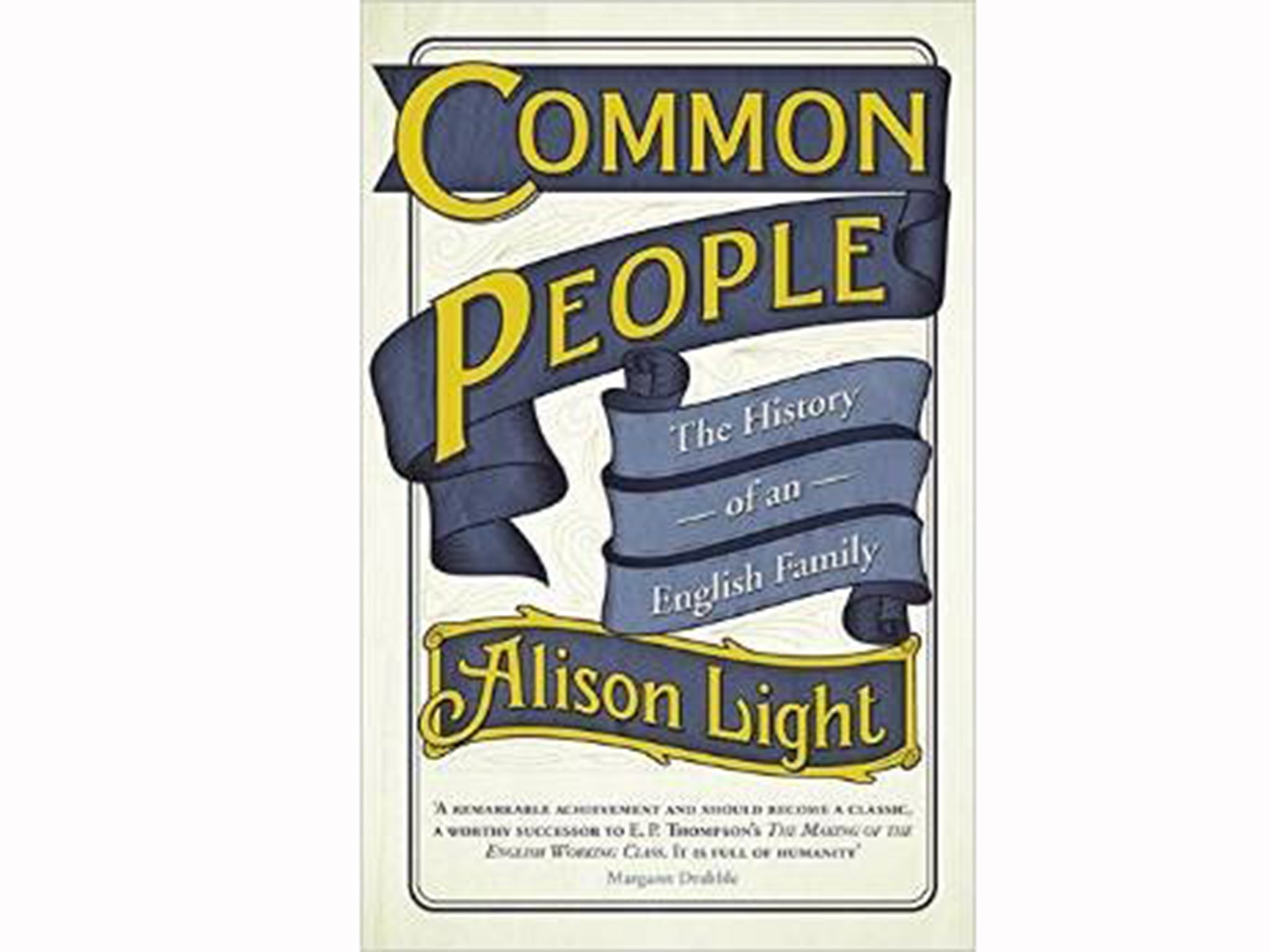Common People : The History of an English Family by Alison Light, book review: A reminder of how unjust lives were lived then and today
Barely a page goes by without something fascinating on it

“There is no ‘closure’ in family history, only the reverberation of a life,” writes Alison Light in this exquisite look back at her own family story, which has just been shortlisted for the Samuel Johnson Prize.
Barely a page goes by without something fascinating on it, betraying Light’s skill in winkling out the most relevant or moving aspects of her antecedents’ lives, which echo through the generations.
These reverberations for Light are firstly, the movement of families throughout the country and even overseas; and secondly, that her “ancestral home” is the workhouse. Lives have begun and ended in the workhouse in her family, which was threatened by poverty on both her parents’ sides. Poverty, and the Industrial Revolution, made both geographical and social movement necessary. As she investigates her father’s history first, Light discovers surprises, though: a more freeing role that her paternal grandmother played during the First World War as part of the Forage Corps. Marriage after the war and subsequent relocations grind her down however, and she dies, too soon, of tuberculosis.
Not everyone succumbed to hardship so quickly. Light finds a proud heritage of Dissenters, who established Sunday schools and challenged the official church. Family history tempts us, she says, into separating the “good” antecedents from the “bad”, but the respected preacher Charles Light was also fined for keeping “unjust scales”; her paternal grandfather who drank so much that her father didn’t like him visiting his children, was nevertheless a good father who worked hard.
It’s on her mother’s side that the institution of the workhouse looms large. And the asylum, where, heartbreakingly, some ended their days. Family historians are “history’s romancers … and its killjoys”, she writes, as she explodes grandparents’ myths about wealthy backgrounds and exotic journeys. Many of her family members died from cholera, tuberculosis or sheer overwork.
In that sense, Light’s family history is probably typical of most of the people of this country. Few of us have rich antecedents and that’s why we have to go searching for those who have no grandly worded headstones, or indeed, headstones at all. By the end, Light is still pondering our fascination for where we have come from. For her, it is a “chance to change the terms in which some are remembered and some forgotten”. Such remembrance is a political act, and those aforementioned “reverberations” remind us of the unjust ways that some lives have been lived, and are still lived today.
Join our commenting forum
Join thought-provoking conversations, follow other Independent readers and see their replies
Comments